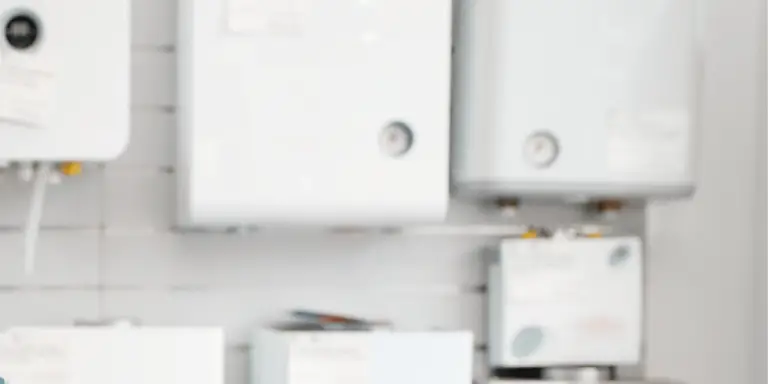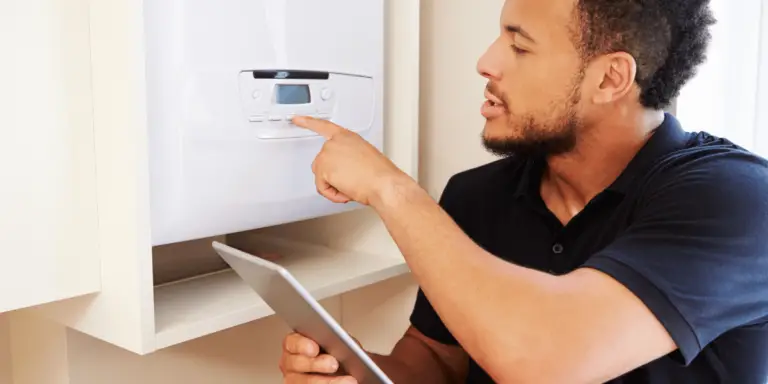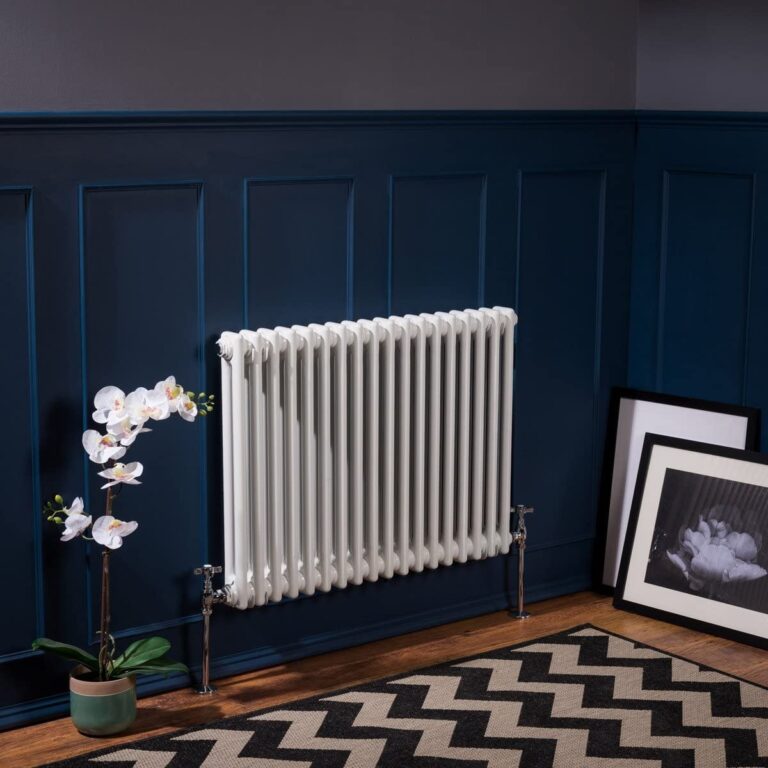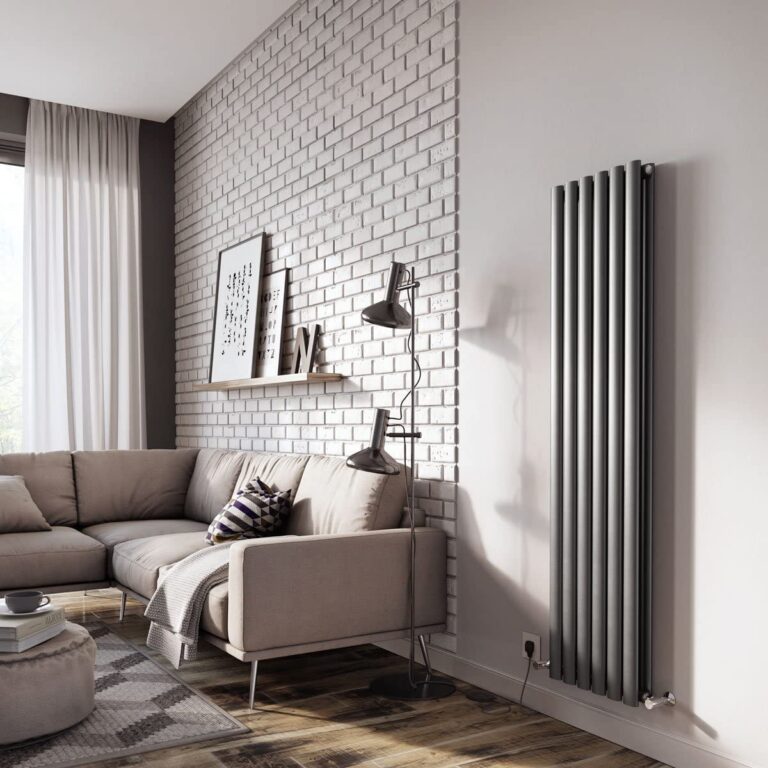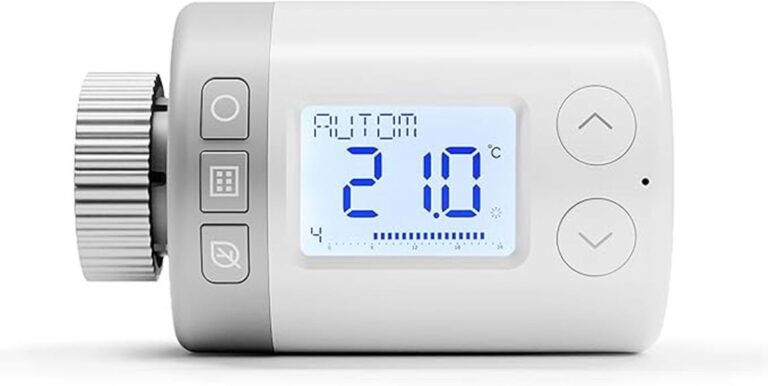Boilers are like the beating heart of a home, providing warmth and comfort to those within its walls. They can often be taken for granted until something goes wrong – then it’s all hands on deck! But if you know how your boiler works and what to look out for, you can keep it running smoothly with minimal fuss. That’s why we’ve put together this ultimate guide on boilers – so no one ever has to face a cold winter without heat again!
From understanding the basics of how gas-fired heating systems work, to recognizing signs when it might need some loving care from an expert engineer, our comprehensive guide covers everything you need to know about keeping your boiler healthy throughout the year. We break down each step in simple terms that even a beginner can understand – so don’t worry if you’re not exactly tech-savvy; this article will make sure that anyone can get their head around looking after their boiler!
Whether you’re a first-time homeowner or just want to brush up on your existing knowledge, we’ve got all the bases covered here. So let’s dive right in and take a look at everything there is to learn about boilers…
Types Of Central Heating Boilers
Ah, boilers. These indispensable machines have been keeping us warm for centuries. From the earliest days of central heating systems to today’s highly efficient models, there are a variety of options available when choosing a boiler for your home. Here we’ll take an in-depth look at some of the main types of central heating boilers out there – so let’s get started!
Traditional Gas Boilers
Firstly, there’s the traditional gas boiler. This trusty old workhorse has been providing warmth and comfort to households around the world for generations now; it is reliable, cost effective and can be easily maintained with a few simple steps every year. It works by burning natural gas or liquefied petroleum gas (LPG) to heat up water that then passes through radiators throughout your home. It also produces hot water which can be stored in a tank or cylinder ready for use whenever you need it.
Combi Boilers
Secondly, combi boilers are becoming increasingly popular nowadays due to their efficiency and space saving capabilities. They don’t require any additional storage tanks as they deliver both hot water and heating from one single unit, eliminating the need for bulky cylinders taking up valuable room in your house. Combi boilers are powered either by mains electricity or gas depending on where you live, making them suitable for almost all homes across the country; plus they come with built-in automated temperature regulation controls that make sure your system runs smoothly without needing too much manual intervention from you.
System Boilers
System boilers are a type of boiler which uses a cylinder to store hot water, but the main difference to traditional gas boilers is that the hot water is circulated around the home via a sealed system of pipes. This means that you don’t have to wait around for the water to heat up, as the system boiler will provide hot water on demand. System boilers are also more efficient than traditional boilers, as they can heat up the water quicker and require less energy to do so.
So if you’re looking for a dependable way to keep yourself warm during those cold winter months while freeing up extra space inside your house – why not consider getting one of these fabulous central heating solutions? Whether you opt for a classic gas model or more modern combi option, rest assured that whichever type you go for will provide years of comfortable living no matter what season it is outside!
Combination Boilers And Their Advantages
When it comes to central heating boilers, one of the most popular types is a combination boiler. Combis, as they’re also known, are ideal for homes where space is at a premium as they don’t need an additional storage tank or hot water cylinder. So let’s take a closer look at what makes these boilers so great and how you can benefit from having one in your home.
Firstly, combi boilers offer unbeatable efficiency levels – making them perfect for households looking to reduce their energy bills. They work by providing hot water on demand and only heat the amount of water that’s needed rather than continuously heating up large volumes like other models. Plus their compact size means they take up much less floor space compared to regular systems, making them well-suited to those with limited room.
Another big plus point of combination boilers is that because there’s no waiting around for stored water to be heated up, you get instant access to hot showers whenever you want them! This also helps save time when doing everyday tasks such as washing clothes or dishes which gives you more free moments during your day. Installation doesn’t have to be complicated either; many brands make their products easy enough for DIY fitting if desired.
Combination boilers really do bring lots of advantages for busy individuals and families who want to keep their utility costs under control without compromising on comfort. With all this in mind, why not consider getting a combi boiler fitted today?
Heat Only Regular Boilers And Their Benefits
Think of heat only regular boilers as Mr. Dependable; they’ll always show up when you need them most. They take care of all the hard work by providing hot water on demand – no fuss or hassle required. And because these types of boilers don’t require any additional tanks, they’re economical too – saving you time and money while looking after your heating needs.
What further sets heat only regular boilers apart from other varieties is their flexibility; they can be installed almost anywhere. This means you can still have a central heating system even if there’s limited space available in your home. Plus, since this type of boiler doesn’t require extra tanks or pumps, installation processes tend to be much simpler than those for other systems.
TIP: Make sure to consult with a qualified engineer before purchasing a new boiler for your property, as not all models will suit everyone’s individual requirements.
System Boilers And Their Features
System boilers are an ideal way to heat your home. Not only do they provide great convenience and efficiency, but they also save you money in the long run. So let’s take a look at what makes system boilers so special!
Their features make them stand out from other boiler types. Firstly, they come with a built-in hot water cylinder. This means that they can store larger amounts of hot water than other kinds of boilers, which is useful if there are multiple people living in your house who need access to hot water simultaneously.
Another important feature is their ability to control temperature more accurately – this helps to keep energy bills down by avoiding unnecessary wastage. Plus, since all the necessary components such as pumps and valves are housed within one unit, installation tends to be quicker and easier compared to traditional boilers or combi-boilers – perfect for those looking for a hassle-free heating solution!
All in all, system boilers offer plenty of advantages over regular ones; these days they’re becoming increasingly popular due to their cost effectiveness and ease of use. Whether you’re replacing an existing system or installing one for the first time, it could very well be worth considering system boilers as your go-to choice.
Condensing Vs. Non-Condensing Boilers
Condensing boilers work by extracting heat from the exhaust gases produced during combustion and then using it to preheat cold water before sending it through the heating system. They use much less energy than non-condensing models because they don’t have to expend as much energy in order to heat up water.
Additionally, they produce fewer emissions overall, making them a more environmentally friendly choice. The downside of choosing a condensing boiler is that they tend to be more expensive upfront compared to other models.
Non-condensing boilers do not extract or re-use any of the heat produced during combustion; instead, all of the heat generated goes into warming up the incoming water supply. While these units won’t save you money on fuel bills like their condenser counterparts would, they are generally cheaper upfront.
However, if you’re looking for long term savings and environmental benefits, investing in a condensing boiler may be worth considering due to its lower running costs and reduced emissions over time.
In summary, each type of boiler has its own set of advantages and disadvantages depending on your individual needs and budget – but with careful consideration you should be able to find a model that meets your requirements perfectly!
Types Of Central Heating Fuels
From natural gas to oil to electric, there are many options when it comes to powering your boiler system. Each has its own benefits and drawbacks, so let’s dive in and explore each one in more detail. Here is a quick overview of three popular types of central heating fuels:
- Natural gas: This is an affordable option that burns cleanly and efficiently. It’s also widely available across most areas in the UK.
- Oil: While not as efficient or cost-effective as natural gas, this fuel still provides reliable heat with minimal maintenance requirements.
- Electric: The main advantage of using electricity is low installation costs and no need for external storage tanks or pipes. However, it tends to be more expensive than other fuel sources when it comes to running costs over time.
- LPG: Liquefied Petroleum Gas is another popular option for central heating fuel. It is relatively inexpensive, and can be delivered to your property in tanks or cylinders. While it is more expensive than natural gas, it can be used in areas where a natural gas supply isn’t available. Additionally, it produces lower emissions than oil, making it a greener option for those looking to reduce their environmental impact.
So which should you choose? That all depends on several factors such as budget, efficiency needs, availability in your area, etc. Whatever you do decide though, make sure you compare different suppliers carefully before committing to anything – doing some research can help save money in the long run!
Gas Central Heating Boilers And Their Uses
Like a knight in shining armour, the gas central heating boiler offers rescue from cold winters. It is one of the most popular fuels used for home heating and comes with many benefits – but it’s important to understand how they work so you can get the most out of your system. Let’s take a closer look at gas central heating boilers and their uses.
One advantage of having a gas boiler is its efficiency: modern systems are designed to use fuel economically, reducing energy bills significantly. They also require minimal maintenance as long as regular servicing is kept up-to-date, meaning that once installed, you don’t have to worry about any additional costs or unexpected repairs.
Another bonus? Gas boilers come with flexible controls that give you more control over temperature settings within your home. This means you’re able to adjust levels according to your lifestyle – perfect for those who like their homes cosy during winter months!
Having a reliable source of heat not only keeps us comfortable; it helps make our homes safer too. Natural gas burns cleanly and doesn’t create smoke or hazardous fumes when burning properly, making it highly efficient for providing warmth throughout our homes without negative impacts on air quality.
As an added benefit, some models include features such as carbon monoxide detectors that increase safety even further by alerting homeowners if there is ever a problem with the unit itself.
Gas central heating boilers provide numerous advantages for homeowners looking to boost comfort while saving money and staying safe indoors. With minimal upkeep required and plenty of options available, this type of fuel could be just what you need to stay warm all year round!
Oil Central Heating Boilers And Their Applications
Some people may think that oil central heating boilers are outdated and not worth considering for their home. But these powerful machines can bring more than just warmth to your house – they can provide a sense of comfort and security, as well as save you money in the long run.
Oil central heating boilers have many benefits over gas models:
- They’re more cost-effective: Oil is typically cheaper per unit than natural gas, so an oil boiler could help you save on energy costs.
- They last longer: An oil boiler will generally outlast its gas counterpart by 15–20 years due to its durability and ability to withstand corrosion better. This means less maintenance down the line and fewer costly repairs.
Not only do oil boilers last longer, but they also require less maintenance than other types of heating systems because they don’t need regular filter changes or vent cleaning like some others do.
With all these advantages, an oil central heating boiler makes perfect sense for anyone looking for reliable heat with minimal hassle and expense.
Electric Central Heating Boilers And Their Pros And Cons
Electric boilers offer some advantages over their oil counterparts. For one, they don’t require fuel storage tanks, making them safer and easier to install than other types of boilers. Plus, since electricity is already available throughout most homes, there’s no need for additional piping or wiring. And because electric boilers are typically located near the point-of-use rather than at a central location like oil systems, they tend to be much quieter too!
On the flip side, electric boilers come with a few drawbacks as well. They’re usually quite expensive compared to other types of boilers – though the cost has decreased significantly in recent years due to advances in technology – and installing them often requires hiring an electrician. Additionally, while modern models are very efficient, older versions may use more energy than necessary.
So before deciding on an electric central heating system for your home, it pays to weigh all of these factors carefully against your needs and budget. Doing so will ensure that you pick the best option for both now and into the future.
LPG Central Heating Boilers And Their Advantages
To start with, an LPG boiler is incredibly efficient. It runs off of gas, which tends to be cheaper than electricity or oil, so you can save money on bills each month without sacrificing the quality of your heat source. Plus, it produces less carbon dioxide than other kinds of fuel, making it better for the environment too!
It’s also relatively easy to install an LPG boiler compared to others; it doesn’t require any major changes to existing infrastructure like electric systems might need. And once it’s up and running, maintenance is simple as well since many modern models come equipped with self-diagnostic features that alert you if something isn’t quite right. So you can rest assured knowing your system is always working at its best!
Whether it’s saving time and money spent dealing with repairs or simply enjoying the comfort and convenience of having an efficient heating system in place year round – there are plenty of reasons why investing in an LPG boiler could be the perfect choice for your home.
Calculating Central Heating Boiler Costs
The first step in calculating the cost of a new boiler is understanding the size needed for your home. If you select too small a model, it won’t heat your house effectively – but if you choose one that’s too large, then it could end up costing more than necessary. So take time to measure all rooms and hallways before making any decisions about sizing or purchasing.
Next, consider installation fees, as these will vary depending on where you live and who does the job. Professional installers may charge several hundred pounds for their services – so make sure to shop around and compare quotes from multiple companies before settling on the best deal for you. Additionally, look into any incentives offered by local energy suppliers or government initiatives to help offset some of those costs.
With a few simple steps, you can determine what type of boiler is right for your property and budget – no matter if it’s an oil-fired condensing unit or an eco-friendly electric system. Making informed choices now will ensure warm winters ahead without breaking the bank!
Choosing The Right Size Central Heating Boiler
Choosing the right size central heating boiler is like putting together a jigsaw puzzle. You need to consider all the pieces of your home and decide which ones fit best together. It’s important to get it right, as selecting too small or large of a boiler can leave you with an unsatisfactory result.
Some of the main considerations include:
- Space: Consider the space available for the boiler and any necessary ventilation space.
- Number of people in the household: Consider how many people will be using the boiler and the hot water supply.
- Number of radiators in your home: The more radiators you have, the more powerful your boiler will need to be in order to heat them all sufficiently.
- Hot water demand: Consider the amount of hot water needed and how quickly it needs to be produced.
- Fuel type: Consider the type of fuel the boiler will use.
- Efficiency: Consider the efficiency of the boiler, how it will affect energy bills and its environmental impact.
- Cost: Consider the cost of the boiler and any additional installation costs.
- Warranty: Consider the length of the warranty and any additional cover provided.
Finding the perfect match for your house isn’t always easy; there are many factors to take into account. To begin with, you’ll want to check how many bedrooms, bathrooms, radiators and hot water cylinders you have. These numbers will help determine what type and size of boiler you should install in order to meet your needs efficiently.
Once that’s done, next up is deciding on fuel source – gas, oil or electric? Each has its own advantages depending on cost and convenience for you personally. Ultimately, picking out the ideal boiler for your home could be daunting but with some research and advice from reliable sources such as industry professionals or experienced plumbers, finding the one that fits just right is possible.
Making sure you’ve got all bases covered when choosing the best-sized boiler can save money in the long run so don’t skip over this essential step!
Understanding Central Heating Boiler Prices
Understanding central heating boiler prices might seem like a daunting task, but it’s actually much simpler than you think. Thankfully, doing some research and being aware of the market can help you make an informed decision on what kind of boiler is right for your home. Here are a few key points to consider while pricing out boilers:
- Boiler Unit Cost: The cost of boilers varies greatly depending on type, size and features. It’s important to take into account all the factors when determining how much money you should spend. When researching different models, ask yourself questions such as “How energy-efficient is this model?” and “What additional features does it have that could save me money in the long run?” This will give you a better understanding of which boiler fits within your budget range.
- Installation: Installing a new central heating boiler isn’t something most homeowners attempt themselves. You’ll need to factor in any installation costs associated with whichever unit you choose. Make sure to hire a qualified installer who can properly install the appliance according to manufacturers instructions; otherwise there could be serious consequences down the line if not done correctly!
- Running costs: The ongoing costs for your boiler will depend on the type of fuel you choose to use and the efficiency of the model. The cost of the fuel you choose (natural gas, oil, electricity, etc.) will affect your monthly running costs, so it’s important to consider the different options available and make sure you choose one that fits your budget.
Having someone experienced handle the installation job means less time spent worrying about whether or not it was installed correctly, giving you peace of mind knowing that your system is running safely and efficiently from day one. So don’t forget to include installation fees in your overall price point when comparing quotes between suppliers.
So there you have it – a few essential things to keep in mind when looking at central heating boiler prices. With this information at hand, finding an affordable yet reliable option becomes easier and more straightforward – no matter what type or size best suits your needs!
Searching For The Best Central Heating Boiler Deals
Searching for the best boiler brands can be a daunting task, especially if you’re not sure what to look out for. But don’t worry! We’ve got your back. In this section of our ultimate guide on boilers, we’ll help you understand how to search and compare prices so you can get the perfect deal that meets all your needs.
Firstly, it’s important to think about what kind of boiler will suit your property – as well as its size and type. You should also consider things like fuel efficiency ratings and warranties when making comparisons between different models. And remember: always shop around! Prices can vary greatly from one supplier to another so make sure you take some time to find the very best deal.
Next up is looking at those extra costs that come with getting a new boiler installed or replacing an existing one – such as labour charges and delivery fees. It pays to ask questions here too; could there be any hidden extras? Can they provide anything else along with installation (e.g fitting insulation)? Taking all these factors into consideration means you won’t end up paying more than necessary in the long run – allowing you to make an informed decision that truly works for you.
So, now you know exactly how to go about finding the right central heating boiler deal – but don’t forget: it’s worth taking a little bit of extra time researching potential suppliers before committing to anything. Doing this ensures that whatever choice you make gives you maximum value without compromising on quality or reliability down the line.
Maintaining And Troubleshooting Central Heating Boilers
With regular maintenance, you’ll have peace of mind knowing that your boiler is running efficiently while avoiding costly repairs. A few simple steps go a long way in keeping your boiler functioning smoothly: check for any leaks or damage to the system, ensure all parts are clean, maintain an ideal boiler pressure, and replace any worn out parts. Additionally, installing an annual service contract will help catch problems before they become serious issues.
Taking proper care of your boiler will keep you safe from unnecessary stress and discomfort during cold winter months. Plus, having an understanding of basic troubleshooting techniques gives you the confidence to address minor issues on your own should something arise. So take some time today to familiarize yourself with how your system works – it’s worth the investment!
Frequently Asked Questions
How Is Boiler Efficiency Measured?
For starters, look at the annual fuel utilization efficiency (AFUE) rating. This is essentially how much heat a particular type of boiler will provide compared to its energy output. A higher AFUE means more efficiency and lower running costs. In fact, some boilers can achieve up to 98% AFUE ratings. Additionally, if you opt for a condensing boiler, they often come with advanced features like weather compensation which further reduces energy bills by adjusting temperatures based on outdoor temperature readings.
How Often Should I Service My Central Heating Boiler?
It’s important to keep your central heating boiler in the best condition possible, so it’s worth knowing how often you should be servicing it. After all, not only will regular maintenance help ensure that your boiler is running as efficiently as possible and reduce costly repairs down the line – but it can also provide a sense of security for you and your family.
When it comes to servicing, most experts recommend getting your boiler serviced at least once every 12 months. This way, any potential issues or safety hazards with your system can be identified before they become a major problem. Plus, having an experienced engineer inspect the inner workings of your unit helps give you peace of mind that everything is working as intended.
However, if you think there might be a more serious issue with your boiler then don’t hesitate to call out a qualified professional sooner than recommended – especially during colder weather when boilers are typically under higher strain. Taking preventative action now could make all the difference further down the line!
How Much Does It Cost To Install A Central Heating Boiler?
The price of a new boiler depends on several factors such as size, efficiency rating, type of fuel used (gas versus oil), warranty coverage, and any additional features or accessories you need. However, a new combi or system boiler can range in price from £600 for a budget model, to £900 for a mid-range boiler, to £2,000 for a premium version. A regular or heat-only boiler can be anywhere from £500 to £2,000, depending on the size and quality.
So if you’re looking to buy a new boiler, you could consider taking out a finance option, which could spread the cost out over a number of years.
It pays to shop around when looking at different quotes and make sure they include everything necessary to install your new boiler correctly and safely. That way you won’t end up regretting your purchase later down the line because something was missed during the installation process due to budget constraints.
There may also be grants available from local authorities or other organisations that could help cover installation costs – so it pays to do research into this before making any decisions about buying and installing your new boiler. Remember: investing in an energy-efficient model can save money in the long run as well as reducing carbon emissions!
What Is The Best Type Of Central Heating Boiler For My Home?
When it comes to finding the perfect boiler, understanding what kind of fuel source works best with your home is key. Do you have natural gas or propane available? Or perhaps electric seems like the most viable option? It’s essential to consider these factors before making your purchase, as they will determine not only the cost but also the performance and longevity of your new system.
By now, I’m sure you’re aware that selecting a central heating boiler isn’t simply about picking out a product at random – there are many aspects to take into account. However, if you arm yourself with knowledge on fuel sources and their associated costs then choosing could become far less daunting! With this knowledge in hand, you’ll be able to confidently make an informed decision – one that will provide greater comfort while saving energy too.
Are There Any Eco-Friendly Central Heating Boilers Available?
With climate change looming ever larger on the horizon, it’s more important than ever before that we do what we can to reduce our carbon footprint. And one of the best ways to achieve this is by investing in green technologies like eco-friendly central heating boilers. This way, not only are we looking after our planet, but also ourselves and those around us – while saving money in the process!
The good news is there are lots of options when it comes to choosing an eco-friendly central heating boiler – from ones powered by renewable sources such as wood pellets or biofuels, right through to modern condensing boilers designed with efficiency in mind. Here are just some of the benefits of going green:
- Lower running costs due to higher efficiency levels
- Reduced emissions and improved air quality
- Increased home value
- Government grants and schemes which help offset installation costs
By opting for an ecologically sound solution over traditional fossil fuels, homeowners can enjoy peace of mind knowing they’re doing their bit for both themselves and the planet. So if you’re looking for an affordable way to make your house greener without sacrificing comfort, then look no further than eco-friendly central heating boilers!
Conclusion
In conclusion, it’s clear that having a good central heating boiler is essential to keeping your home warm and comfortable. With so many options available on the market today, determining which type of boiler is best for you can be daunting. But with our ultimate guide, we’ve made choosing the most energy efficient model easy!
We hope this guide has helped put all your questions to rest and empowered you to make an informed decision when selecting the perfect central heating boiler for your home. From finding out what kind offers maximum efficiency to understanding how often servicing should take place, no stone was left unturned in giving you the very best advice. It’s like having an expert at hand for every step of the process – only without the outrageous fee!
No matter which brand or style of central heating boiler you choose, one thing remains true: upgrading will not only reduce costs on energy bills but also give you peace of mind knowing that your family is safe and secure – even during those winter months where our British climate plummets to sub-zero temperatures.

